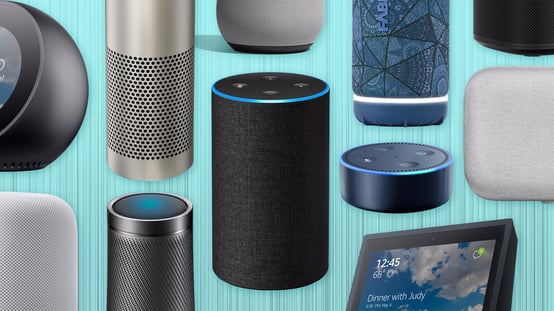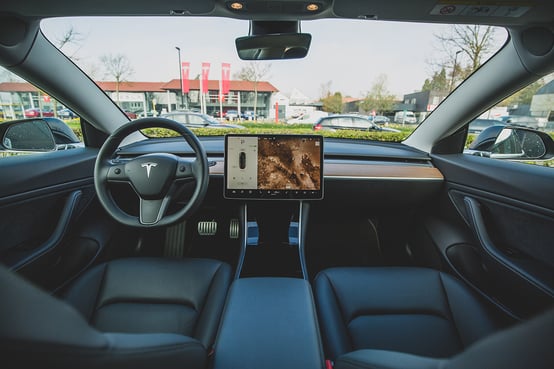The technology industry regularly talks about Artificial Intelligence and Machine Learning, but to those who are unfamiliar, the terms still sound like science fiction. Believe it or not, we are all likely engaging with Artificial Intelligence and Machine Learning every day, and it is improving our world.
What is Artificial Intelligence?
The term Artificial Intelligence (AI) is commonly associated with robots like WALL-E and Rosie the robot maid from The Jetsons, but the term does not mean “robot.” It simply refers to a computer system that can exhibit reasoning and understanding to imitate human behavior. AI can be as simple as an algorithm used to accomplish one task or as complex as the IBM Watson supercomputer—which is the closest we have become to mimicking the human brain. Watson blew us away when he played on Jeopardy in 2011 and swept the floor with the best of the best Jeopardy challengers. The computer would listen to the Jeopardy questions—sometimes including puns and clues—research, and give its best answer given the information in a matter of seconds. This is very close to how the human brain operates.
What is Machine Learning?
Machine Learning is a subset of Artificial Intelligence and refers to the computer system’s ability to learn based on collecting new data and feedback. Just as getting burned teaches a person to avoid a hot stove, computer systems learn from the results of actions as well. For instance, our InsightSuite Platform uses predictive analytics to forecast how well product designs will perform, and at different price points. When our customers purchase and sell these items, both the decisions made and sales performance are fed back into our program, allowing it to learn and adjust. With each test, our platform learns and becomes more predictive and precise—pure Machine Learning.
AI and Machine Learning are improving our world every day. Here are five common applications that enhance daily life.
1. Smart Speakers

If you purchased a smart speaker like Amazon Alexa or Google Home this year, you are not alone. Analysts at Canalys forecast 200 million smart speakers will be sold by the end of 2019. These speakers can play your favorite song, check the weather, call almost anyone, control other smart home devices, and even more with voice recognition. Smart speakers use artificial intelligence to understand your words and even the context.
Even more fascinating, Alexa uses machine learning to become smarter, and decreased its error rate by 25% last year primarily through machine learning supervised by engineers. Amazon launched self-learning for Amazon Alexa last December, and now Alexa can learn from its interactions with users. What’s next? Amazon wants Alexa to understand emotions, and even give different responses based on tone.
2. Google Maps and Predictions

Has Google Maps ever informed you that taking another route could save you time? Google Maps gathers real-time data from a number of sources: location services for traffic information, Waze reporting on accidents and closures, and speed limits and historical speed information. Google takes all of these pieces of data and uses artificial intelligence to suggest the best routes with accurate ETAs. Machine Learning is continuous as more real-time data is fed into the application as you drive. With the accuracy and convenience of Google Maps, it’s hard to imagine ever relying on a paper map.
3. Spam Email Filters

What would your inbox look like without a spam or junk filter? While most email services use simple rules to stop junk and spam emails, Google’s gmail uses artificial intelligence and machine learning to block an additional 100 million spam messages. Gmail uses TensorFlow, an open-source Machine Learning framework developed at Google to look for patterns in reported spam messages and create better filters to weed out the spam messages that are hard to detect. Even more interesting, the spam filters are personal to each user. While one may mark a message is spam, another may enjoy reading their spam-looking newsletters and emails.
4. Personalized Recommendations

Simply put, personalized recommendations are awesome. Netflix and YouTube provide recommendations based on other content you have previously watched. Social Media provides connection suggestions as well as tailored content, and retailers like Macy’s and Banana Republic show products you might like based on browsing and purchase history. Of course, Amazon is the poster child for AI and machine learning for personalization. Amazon provides a personal profile for each user, and displays products you never knew existed but now must have, thanks to personalization.
Subscription box services like ipsy and HelloFresh use AI and machine learning to personalize their product offerings. Ipsy uses a preference quiz that can be updated at any time, along with your reviews on past items, to create the best product mix for each user. They send out about 10,000 different combinations of beauty products to their ipsters every month based on each profile. HelloFresh uses reviews from subscription users to establish a feedback loop, and machine learning takes over to provide personalized meals for its users with only some help of employee intuition.
5. Self-Driving Cars and Safety Features

Self-Driving Cars are a work in progress and still have a long way to go. Uber’s fatal accident has triggered calls for greater safety and testing. But, as technology advances and becomes safer, there is great potential. In the U.S. alone, there is an average of 6 million car accidents every year, and 10,000 fatalities from drunk driving. If self-driving cars can make our roads safer, they are worth the investment. While a completely driverless car is beyond our reach right now, vehicle companies like Audi and Tesla are implementing various self-driving innovations using AI and Machine Learning in their new models.
AI and Machine Learning make our world better every single day from Google Maps to personalized shopping experiences. These technologies will continue to advance and improve our lives. The potential benefits are truly limitless.
About First Insight’s Platform
Our AI and Machine Learning-powered Predictive Analytics Platform improves the effectiveness of our customers and their consumers’ experiences by helping retailers and brands choose the right product designs, pricing, and quantities. Learn more about how First Insight can reduce markdowns, set entry price points, reduce store testing, improve product success, and more.
















